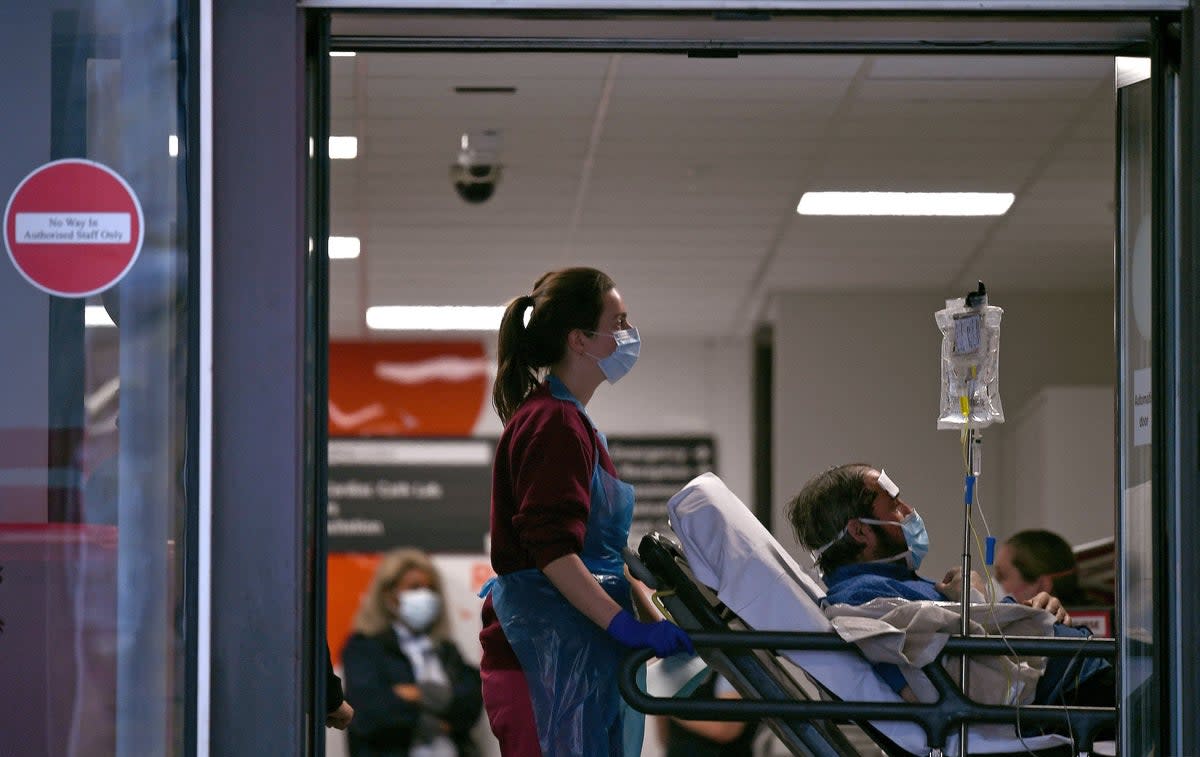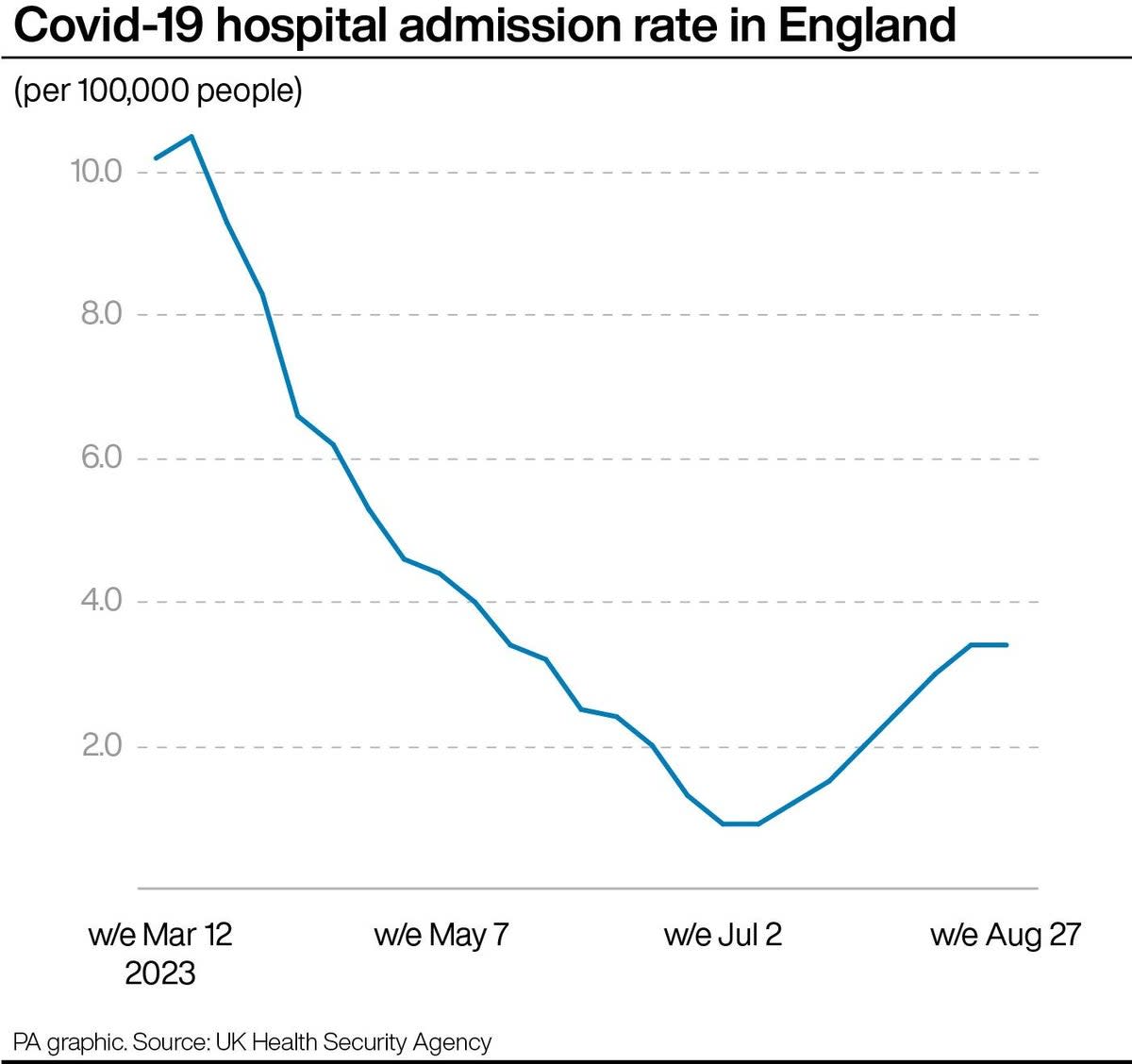Fears over new ‘Pirola’ Covid variant as scientists warns UK has ‘let our guard down’
The UK has “let our guard down” over Covid and is “quite blind to what is going on”, a scientist has warned as concerns grow over the new BA.2.86 coronavirus variant.
The government brought forward its autumn Covid booster vaccine drive this week in response to the discovery of the new variant, which has a similar number of mutations to Omicron and Delta and was detected in the UK and several other nations across the globe.
While scientists have welcomed the “precautionary” decision, the role that the new variant BA.2.86 – dubbed “Pirola” – may play in the coming months remains far from clear.
Although optimistic that the booster will offer some protection, some virologists conceded that “we don’t know yet” whether it will provide adequate protection in all instances as its many mutations may mean it can evade the jab.
But with just one case confirmed in England, and another by Public Health Scotland on Thursday, the new strain is not currently classified as a “variant of concern”.
More concerning to scientists is the return of children to schools and adults to offices following the summer holidays with “waning immunity” and, said Professor Lawrence Young, “a general misplaced view that there's is no longer a need to be worried about Covid”.
“Sadly, this is not the case. At the moment we’ve let our guard down and we’re quite blind to what’s going on,” said Prof Young, of the University of Warwick.
While the Office for National Statistics’ (ONS) monitoring of the virus was wound down in March – to many epidemiologists’ dismay – the Zoe Health Study estimates that infections spiked by nearly 200,000 cases last month, rising to around 785,000 on 27 July. Covid-related hospital admissions are running at their highest rate for three months.
“One way of controlling infection is to have at least some idea of where you’re seeing particular outbreaks and might be able to introduce precautionary measures to prevent the virus spreading further – but you have to know where it is,” said Prof Young.

“This new [variant] is popping up all over the place at the moment, but we’re not monitoring it in the population.”
The virologist added: “Now testing isn’t free and people have to buy lateral flow tests ... if people have coughs and colds, would they go back to work? They probably would, even if they tested positive.
“There really is an issue here – we’ve completely removed all mandatory testing, we’ve removed the ONS survey, so we’re in quite an interesting situation. What this is telling us is Covid hasn’t gone away.
“And even though people are really bored with it, it’s still out there, it’s still changing – and it’s still unpredictable. With flu, however nasty flu can be, it’s seasonal and can be predictable – Covid is neither of those things. Not yet anyway, the hope is in the future it will be.”
This month saw calls return for people to consider wearing face masks in high-risk settings – likely to have been greeted in many quarters with a considerable degree of weariness and scepticism.
But Prof Young believes the government and NHS should be putting out recommendations on face masks in high-risk places such as hospitals, and increasing ventilation in spaces such as schools, adding: “I can see we’re going to be in a situation over the winter period where we’re wearing face masks.”

However, whether these factors will combine to drive “a major wave is debatable”, Prof Young said, noting that the population’s significant past exposure to vaccines and the virus – evident in the gradual drop in severe cases – is working in our favour.
“My experience and the hospitals’ experience of the current variant [is] the virus itself is not as nasty as it was in the past,” said Professor Denis Kinane, co-founder of Covid testing firm Cignpost Diagnostics.
Prof Kinane said this can translated to mutations too.
Asked about the new variant, which the US Centres for Disease Control estimates has around 35 mutations compared with Omicron XBB.1.5 – the variant which the new vaccines target – he said: “The number of mutations doesn’t correlate linearly with virulence [how harmful a virus is], it can actually go the other way.”

“The virus is always mutating, and doesn’t really care whether it actually is more or less virulent,” the immunologist added. “In many respects, it’s actually better for the virus if it’s less virulent meaning causes less illness and death. That means the virus can actually survive and [spread] more.”
However, Professor John Edmunds, of the London School of Hygiene and Tropical Medicine (LSHTM), noted that many of the large number of mutations in the new variant – discovered in countries including South Africa, the US and Israel – “might be expected to help the virus evade existing immune responses”.
As a precaution, “it makes sense, therefore, to bring forward the planned autumn vaccination campaign to ensure that those at highest risk” have their protection topped up, he said, noting that “it is not yet clear whether it is replacing existing strains” in any countries where it has been picked up.
Speaking to the Financial Times this week, Eric Topol, director of the San Diego-based Scripps Research Translational Institute, had also warned that the boosters might not help much against the new variant because of its significant number of mutations.
Prof Young said that, while “we don’t know yet” whether the vaccine booster being rolled out from 11 September will provide adequate protection against the new Covid variant, particularly for the most vulnerable, “the suspicion is it will”. He added: “It should be okay, but we don’t know.”
Professor Mark Jit, also of LSHTM, was similarly hopeful.
“We know very little about the BA.2.86 variant at the moment, but a recent dose of a Covid vaccine like the kind used in the UK has so far consistently provided decent protection against severe disease across many different variants, even though protection against milder disease has been more variable across variants,” the vaccine epidemiologist said.
He added: “It should help protect the most vulnerable people in the country, as well as reducing the risk that the NHS becomes overstretched.”
